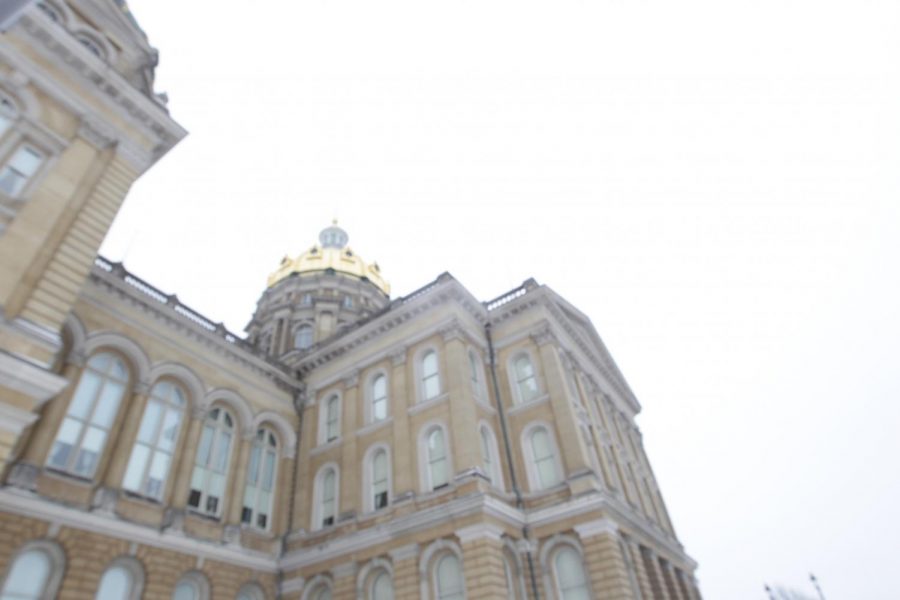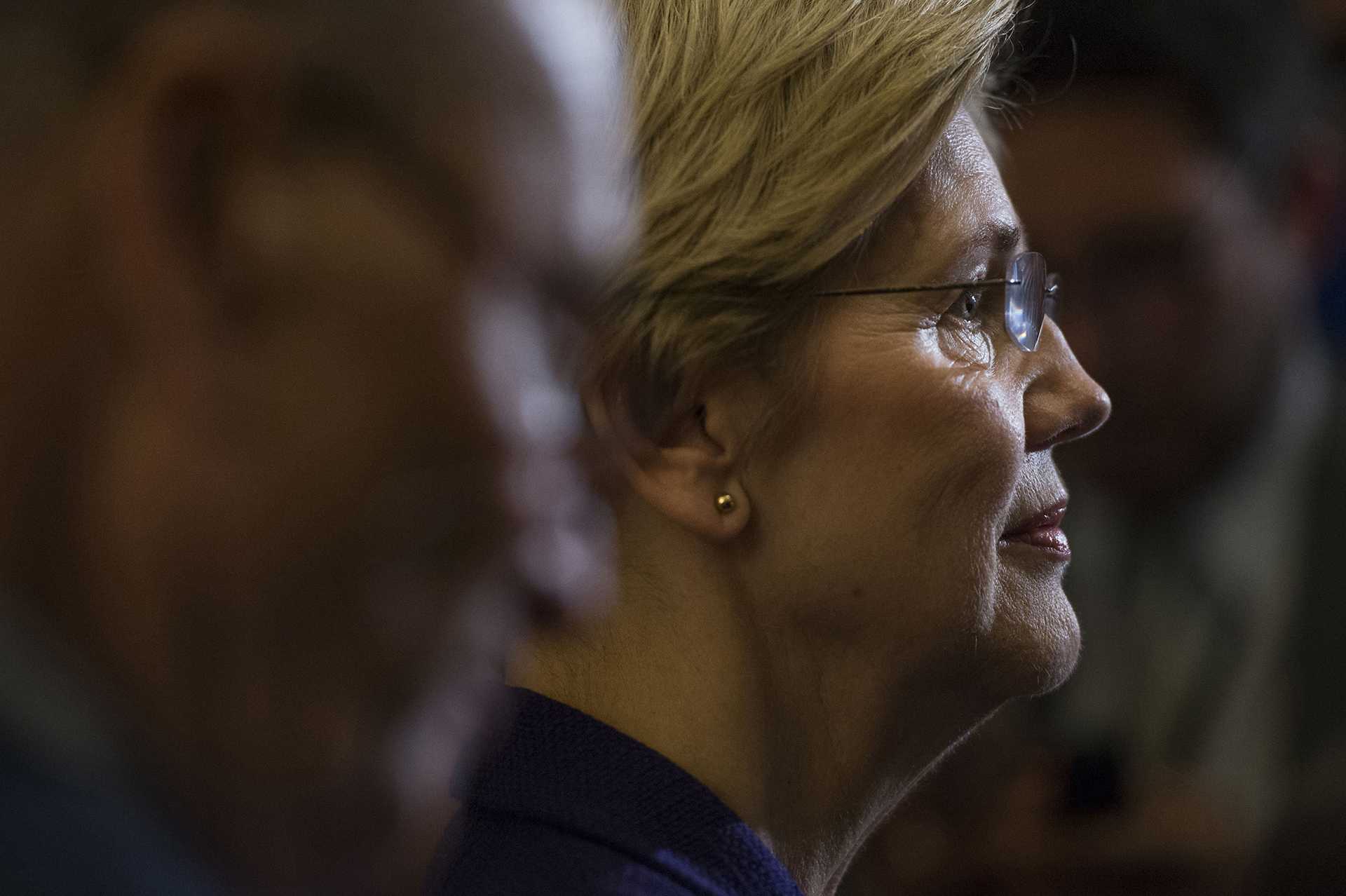Iowa Senate resolution draws attention to student-loan interest rates
A concurrent resolution in the Iowa Senate is advocating for the limitation of interest rates on student loans.
The Iowa Capitol is seen on Jan. 14 during the first day of the Legislative session. (Emily Wangen/The Daily Iowan)
February 3, 2019
A state Senate concurrent resolution is moving its way up through subcommittees before potentially being sent as a resounding message from the Iowa Senate in support of limiting student-loan interest rates.
The resolution introduced on Jan. 14 by Iowa Sen. Brad Zaun, R-Urbandale, advocates limits on loan interest rates from the U.S. Education Department.
“My resolution that we would all vote on is headed to U.S. Congress to say, ‘Stop overcharging our students,’ ” Zaun said. “The bottom line here is our federal government is making money off of our students.”
The resolution recommends limiting student-loan interest rates to no more than 2 percentage points higher than the current prime-interest rate, currently around 5 percent. Currently, interest rates on federal student loans range from five to 7.6 percent, depending on the type of loan.
RELATED: Bill to end tenure at UI advances in the Iowa Legislature
A subcommittee unanimously recommended passing the resolution on Jan. 29. Zaun said he thinks the resolution will have no problem getting through the Senate and will likely continue to gather bipartisan support.
A concurrent resolution is a written motion that is adopted by both chambers of the legislature; however, it differs from a bill in that it does not require the governor’s signature and isn’t enforceable by law.
Zaun explored the idea of creating a bill to limit interest rates on student loans, but discovered that state senators don’t have jurisdiction over the subject. Instead, he hopes a resolution with full bipartisan support will make an impression on the members of Congress.
Resolutions are a strong way to send a message to Washington, D.C. I’m hopeful that other legislatures throughout the U.S. will do the same.
— Sen. Brad Zaun
If approved by the Senate, Zaun said, the resolution will be sent to Speaker of the House Nancy Pelosi and Senate Majority Leader Mitch McConnell.
“Resolutions are a strong way to send a message to Washington, D.C.,” Zaun said. “I’m hopeful that other legislatures throughout the U.S. will do the same.”
Sen. Zach Wahls, D-Coralville, who served on the subcommittee reviewing Zaun’s resolution, said he voted for the resolution and hopes that it passes. However, he thinks that another higher-education bill proposing an end to university tenure, which Zaun worked on, would work counterintuitively by raising salaries and raising tuition costs for students.
The concurrent resolution outlines a greater problem with student debt in Iowa. It states that the average statewide debt for all 2017 university graduates in Iowa was $29,859, ranking the state as 20th for highest level of debt in the nation.
Sen. Herman Quirmbach, D-Ames, said tuition at universities has risen far faster than inflation over the last few decades, which has accounted for the increasingly burdensome debt.
RELATED: Legislators entertain possibility of financial literacy requirement
He referred to education presentations that university leaders gave to lawmakers last week In those, the UI estimated that 55 percent of graduates graduate with debt. The figures are 59 percent at Iowa State University and 66 percent at the University of Northern Iowa.
“So college costs, tuition costs have been rising,” Quirmbach said. “We’ve actually made some progress with student debt. But you still have a majority of students at [public university] institutions … graduating with loan payments.”
The issue of student loans is picking up steam in Washington as well. On Jan. 30, Sen. Joni Ernst, R-Iowa, introduced a bill known as “Transparency in Student Lending Act.” The bill aims to improve information regarding student loans for parents and students. If passed, it would disclose the annual percentage rate for federal student loans to borrowers.
“Over 90 percent of student loans are originated and guaranteed by the federal government,” Ernst said in a Jan. 30 news release. “It’s critical that prospective students and their families have access to necessary information about these loans when considering their lending options, and that’s exactly what this bill does.”





















